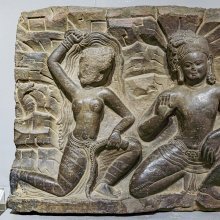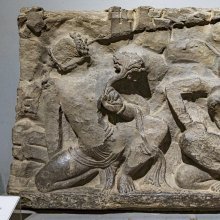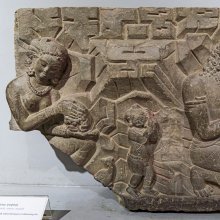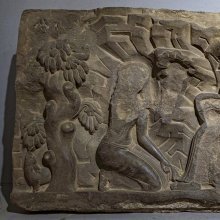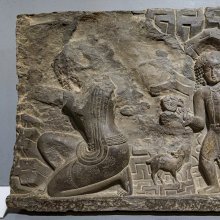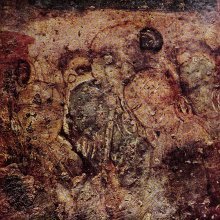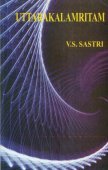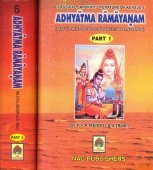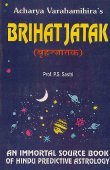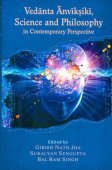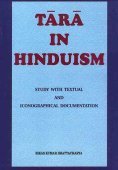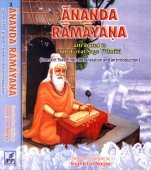Kalidasa, Kālidāsa: 17 definitions
Introduction:
Kalidasa means something in Buddhism, Pali, Hinduism, Sanskrit, the history of ancient India. If you want to know the exact meaning, history, etymology or English translation of this term then check out the descriptions on this page. Add your comment or reference to a book if you want to contribute to this summary article.
Images (photo gallery)
(+2 more images available)
In Hinduism
Kavya (poetry)
Source: Shodhganga: A critical appreciation of soddhalas udayasundarikathaKālidāsa (कालिदास).—His best claim to eminence lies in his being our greatest poet in all the three principal departments of poetry viz., lyric, epic and dramatic. He has given us the three dramas, Malvikāgnimitra, Vikramorvaśīya and Śākuntala, two epics, the Kumarasambhava and the Raghuvaṃśa, one Khaṇḍakāvya, the Meghadūta and one lyric, the Ṛtusaṃhāra.
Scholars have convincingly shown that Kālidāsa flourished in the Gupta period, probably the fifth century A.D. Kālidāsa is known for his Vaidarbhī style. His language is sweet and simple. His poetry is free from long compounds and is rich in figures of speech. He is famous far his similies and the praise is well deserved.
Source: Shodhganga: The Kavyamimamsa of RajasekharaKalidāsa (कलिदास) is the name of an important person (viz., an Ācārya or Kavi) mentioned in Rājaśekhara’s 10th-century Kāvyamīmāṃsā.—In the fourth and tenth chapter of the Kāvyamīmāṃsā, YV Rājaśekhara mention the great poet Kālidasa. The fourth chapter he posit Kālidasa’s as the poet and critic. We found that Rājaśekhara cited most of the stanza’s from different works of Kālidāsa. Heis the most famous poet of Sanskrit literature and his prose describe in the various poets.

Kavya (काव्य, kavya) refers to Sanskrit poetry, a popular ancient Indian tradition of literature. There have been many Sanskrit poets over the ages, hailing from ancient India and beyond. This topic includes mahakavya, or ‘epic poetry’ and natya, or ‘dramatic poetry’.
Chandas (prosody, study of Sanskrit metres)
Source: Shodhganga: a concise history of Sanskrit Chanda literature1) Kālidāsa (कालिदास).—There are many Kālidāsas, in the literary history of India. After the Kālidāsa (author of Raghuvaṃśa and others), a tradition established by the then learned scholars and kings as patrons were to felicitate a person of eminence by conferring on him with the title of (Kālidāsa). Hence the title Kālidāsa was instituted and the name became more popular. There were also some poets, who declared themselves as Kālidāsa.
1) Kālidāsa (कालिदास) (C. 4th-5th century) is the name of an author of works dealing with prosodoy (chandas or chandaśśāstra) quoted by Kṣemendra (11th century) in his Suvṛttatilaka. The Suvṛttatilaka is a monumental work of Sanskrit prosody in which the author discusses 27 popular metres which were used frequently by the poets (e.g., Kālidāsa).
2) Kālidāsa (कालिदास) (C. 12th-15th century), the author of Śrutabodha might be different from the famous Kālidāsa, author of Raghuvaṃśa.

Chandas (छन्दस्) refers to Sanskrit prosody and represents one of the six Vedangas (auxiliary disciplines belonging to the study of the Vedas). The science of prosody (chandas-shastra) focusses on the study of the poetic meters such as the commonly known twenty-six metres mentioned by Pingalas.
Purana and Itihasa (epic history)
Source: archive.org: Puranic EncyclopediaKālidāsa (कालिदास).—The greatest poet and dramatist in Sanskrit. Some scholars opine that Kālidāsa flourished in the 8th Century B.C. while others place his date upto the period 11th Century A.D. At any rate most of the scholars consider the period between 1st Century B.C. and 5th Century A.D. as the most probable date of the great poet. Some of the main theories in this regard are as follows;— Eighth century B.C. Towards the close of Raghuvaṃśa Mahākāvya Kālidāsa has referred to the son of King Agnimitra. Therefore the poet must have lived in the 8th Century B.C. This is the view of the scholar Hippolyte Fanche. (See full article at Story of Kālidāsa from the Puranic encyclopaedia by Vettam Mani)

The Purana (पुराण, purāṇas) refers to Sanskrit literature preserving ancient India’s vast cultural history, including historical legends, religious ceremonies, various arts and sciences. The eighteen mahapuranas total over 400,000 shlokas (metrical couplets) and date to at least several centuries BCE.
General definition (in Hinduism)
Source: Google Books: 101 Mystics of IndiaKalidasa (6th Century A.D.)—Kalidasa is the national poet of India and the greatest Sanskrit poet. Kalidasa has composed the lyrics Ritusamhāra and Meghadūta, the two epics Raghuvamsa and Kumārasambhava, and the three plays Malavikagnimitra, Vikramorvaśiya and Śākuntalam.
Source: WikiPedia: HinduismKālidāsa (कालिदास; lit: "servant of Kali") was a Classical Sanskrit writer, widely regarded as the greatest poet and dramatist in the Sanskrit language. His floruit cannot be dated with precision, but most likely falls within the 5th century AD. Scholars have speculated that Kālidāsa may have lived either near the Himalayas, or in the vicinity of Ujjain, or in Kalinga.
Kālidāsa wrote three plays.
- Mālavikāgnimitram ("Mālavikā and Agnimitra") tells the story of King Agnimitra, who falls in love with the picture of an exiled servant girl named Mālavikā.
- Abhijñānaśākuntalam ("Of Shakuntala recognised by a token") tells the story of King Dushyanta who, while on a hunting trip, meets Shakuntalā, the adopted daughter of a sage, and marries her.
- Vikramōrvaśīyam ("Pertaining to Vikrama and Urvashi") tells the story of mortal King Pururavas and celestial nymph Urvashi who fall in love.
Among them, Abhijñānaśākuntalam ("Of Shakuntala recognised by a token") is generally regarded as a masterpiece.
In Buddhism
General definition (in Buddhism)
Source: academia.edu: The Chronological History of BuddhismIf Taranatha’s source is genuine, then the author of Meghadutam was the Kalidasa I who was the native of Magadha and lived in the 11th century BCE whereas Kalidasa II, the native of Ujjain lived in the 1st century BCE and authored Raghuvamsha.
India history and geography
Source: What is India: Epigraphia Indica volume XXXI (1955-56)Kālidāsa is one of the Brāhmaṇa donees mentioned in the “Asankhali plates of Narasiṃha II” (1302 A.D.). When a grant was made to a large number of Brāhmaṇas, the chief amongst the donees seems to have been called Pānīyagrāhin especially. In the present record, though all the donees (e.g., Kālidāsa) are referred to as Pāṇigrāhi-mahājana, their list is headed by a Brāhmaṇa with Pāṇigrahī as his surname.
These copper plates (mentioning Kālidāsa) were discovered from the house of a Santal inhabitant of Pargana Asankhali in the Mayurbhanj State (Orissa). It was made when king Vīra-Narasiṃhadeva was staying at the Bhairavapura-kaṭaka (city, camp or residence).

The history of India traces the identification of countries, villages, towns and other regions of India, as well as mythology, zoology, royal dynasties, rulers, tribes, local festivities and traditions and regional languages. Ancient India enjoyed religious freedom and encourages the path of Dharma, a concept common to Buddhism, Hinduism, and Jainism.
Languages of India and abroad
Sanskrit dictionary
Source: DDSA: The practical Sanskrit-English dictionaryKālidāsa (कालिदास).—
1) Name of a celebrated poet (author of many works like Śākuntala, Raghuvaṃśa &c.).
2) Name of two other poets (author of Nalodaya and Śrutabodha).
Derivable forms: kālidāsaḥ (कालिदासः).
Source: Cologne Digital Sanskrit Dictionaries: Shabda-Sagara Sanskrit-English DictionaryKālidāsa (कालिदास).—m.
(-saḥ) The name of a celebrated poet, author of Sakuntala, Vikramorvasi, the Megha Duta, the Raghu Vansa, the Nalodoya and other poems: he was one of nine poets or gems of Vikrama- Ditya'S court, and is supposed to have flourished in the century preceding the Christian æra; the name is however applied to more persons than one, and seems, in measure, to have been used as an honorary title; the work attributed to this author are amongst the most elegant compositions in the Sanskrit language. E. kālī the goddess Durga, and dāsa a slave, the final of kālī being made short.
Source: Cologne Digital Sanskrit Dictionaries: Benfey Sanskrit-English DictionaryKālidāsa (कालिदास).—i. e. kali-dāsa (with i shortened), m. A proper name, [Śākuntala, (ed. Böhtlingk.)] 3, 12.
Source: Cologne Digital Sanskrit Dictionaries: Cappeller Sanskrit-English DictionaryKālidāsa (कालिदास).—[masculine] [Name] of several poets.
Source: Cologne Digital Sanskrit Dictionaries: Aufrecht Catalogus Catalogorum1) Kālidāsa (कालिदास) as mentioned in Aufrecht’s Catalogus Catalogorum:—See Abhinavakālidāsa, Navakālidāsa. Three poets Kālidāsa were known at the time of Devendra (Kavikalpalatā) and of Rājaśekhara (Prabandhakośa). Oxf. 211^b. Kāvyamālā 1, 8.
2) Kālidāsa (कालिदास):—kālidāsa, father of Yogānanda (Krīḍāvalī). Bühler 540.
3) Kālidāsa (कालिदास):—kālidāsa, father of Hṛdayābharaṇa (Gītagovindatilakottama), Devadāsa and Śaṅkara. W. p. 168.
4) Kālidāsa (कालिदास):—Stanzas of his are given by Kṣemendra in Aucityavicāracarcā and Suvṛttatilaka. Śp. 4. 15. 77. [Sūktikarṇāmṛta by Śrīdharadāsa] [Subhāshitāvali by Vallabhadeva] Abhijñānaśakuntala. Kunteśvaradautya. Quoted by Kṣemendra in Aucityavicāracarcā 20. Kumārasambhava. Mālavikāgnimitra. Meghadūta or Meghasaṃdeśa. Raghuvaṃśa. Vikramorvaśī. Ambāstava. Ṛtusaṃhāra. Kālīstotra. Kāvyanāṭakālaṃkārāḥ. Ghaṭakarpara. Khn. 40. Burnell. 158^a. Caṇḍikādaṇḍakastotra. Kh. 65. Durghaṭakāvya. Nalodaya. Navaratnamālā. Puṣpabāṇavilāsa. Rākṣasakāvya. B. 2, 102. Rāmasetu. See Setubandha. Laghustava. Bp. 303. Vidvadvinodakāvya. Vṛndāvanakāvya. Śṛṅgāratilaka. Śṛṅgārasāra. Śyāmalādaṇḍaka. Śrutabodha. Setubandha or Rāmasetu.
5) Kālidāsa (कालिदास):—Gaṅgāṣṭaka. Maṅgalāṣṭaka. L. 2462.
6) Kālidāsa (कालिदास):—Jyotirvidābharaṇa.
7) Kālidāsa (कालिदास):—Ratnakośa lex. L. 2574.
8) Kālidāsa (कालिदास):—Śuddhicandrikā. K. 196.
9) Kālidāsa (कालिदास):—son of Balabhadra: Kuṇḍaprabandha. Peters. 1, 114.
10) Kālidāsa (कालिदास):—son of Rāmagovinda, composed in 1751: Tripurasundarīstutikāvya. L. 2166.
11) Kālidāsa (कालिदास):—Lakṣmīstava.
12) Kālidāsa (कालिदास):—some late author: Kalyāṇastava. Carcāstava. Makarandastava.
Source: Cologne Digital Sanskrit Dictionaries: Monier-Williams Sanskrit-English DictionaryKālidāsa (कालिदास):—[=kāli-dāsa] [from kāli-tarā] m. ([from] kālī, the goddess Durgā, and dāsa, a slave, the final of kālī being shortened; cf. [Pāṇini 6-3, 63]), Name of a celebrated poet (author of the Śakuntalā, Vikramôrvaśī, Mālavikāgnimitra, Megha-dūta, and Raghu-vaṃśa; described as one of the nine gems of Vikramāditya’s court, and variously placed in the first, second, third, and middle of the sixth century A.D.; the name is, however, applied to several persons, especially to two others who may have written the Nalôdaya and Śruta-bodha [hence the Name is used to denote the number, ‘three’], and seems, in some measure, to have been used as an honorary title).
Source: Cologne Digital Sanskrit Dictionaries: Yates Sanskrit-English DictionaryKālidāsa (कालिदास):—[kāli-dāsa] (saḥ) 1. m. The name of a celebrated Hindu poet.
[Sanskrit to German]
Sanskrit, also spelled संस्कृतम् (saṃskṛtam), is an ancient language of India commonly seen as the grandmother of the Indo-European language family (even English!). Closely allied with Prakrit and Pali, Sanskrit is more exhaustive in both grammar and terms and has the most extensive collection of literature in the world, greatly surpassing its sister-languages Greek and Latin.
See also (Relevant definitions)
Partial matches: Kali, Dasa, Taca.
Starts with: Kalidasa cakravartin, Kalidasa ganaka, Kalidasacandrika, Kalidasaka, Kalidasamishra, Kalidasanandin, Kalidasapancashat, Kalidasaprahasana, Kalitacan.
Ends with: Abhinavakalidasa, Akabariya kalidasa, Ishvarakrishna kalidasa, Kashyapa abhinavakalidasa, Navakalidasa, Shambhu kalidasa.
Full-text (+720): Raghukara, Kotijit, Medharudra, Kalidasaka, Meghaduta, Kumarasambhava, Abhinavakalidasa, Shrutabodha, Shringararasashtaka, Navakalidasa, Bhasha, Bhartrivallabhata, Vagdevataguru, Kalitacan, Rangh, Ritusamhara, Kumaradasa, Kaumudika, Raghuvamsha, Mahakavi.
Relevant text
Search found 95 books and stories containing Kalidasa, Kālidāsa, Kali-dasa, Kāli-dāsa; (plurals include: Kalidasas, Kālidāsas, dasas, dāsas). You can also click to the full overview containing English textual excerpts. Below are direct links for the most relevant articles:
Kavyamimamsa of Rajasekhara (Study) (by Debabrata Barai)
Part 8.9 - Characteristics of Varṣā-kāla (rainy season) < [Chapter 5 - Analyasis and Interpretations of the Kāvyamīmāṃsā]
Part 3.4 - Distinguish between Kavi (poet) and Bhāvaka (critic) < [Chapter 5 - Analyasis and Interpretations of the Kāvyamīmāṃsā]
Part 7.1 - Origin and development of the Kavisamaya (poetic conventions) < [Chapter 5 - Analyasis and Interpretations of the Kāvyamīmāṃsā]
Kalidasa the Playwright different from < [July – September, 1999]
Kalidasa, the Poet < [July-August 1931]
Some Similes of Kalidasa < [December 1943]
Kuntaka’s evaluation of Sanskrit literature (by Nikitha. M)
1. Kālidāsa in Kuntaka’s treatment < [Chapter 2 - Kuntaka’s appraisal of Kālidāsa]
Conclusion to Chapter 2 < [Chapter 2 - Kuntaka’s appraisal of Kālidāsa]
5. Abhijñānaśākuntala in Kuntaka’s treatment < [Chapter 2 - Kuntaka’s appraisal of Kālidāsa]
Shishupala-vadha (Study) (by Shila Chakraborty)
Source of the epic Śiśupālavadha < [Introduction]
Māgha’s diversity in composition < [Introduction]
The influence of Kālidāsa, Bhāravi and Bhaṭṭi on the Śiśupālavadha < [Introduction]
Natyashastra (English) (by Bharata-muni)
Part 8 - The Date of the Nāṭyaśāstra < [Introduction, part 1]
Part 3 - Literary Structure of the Drama < [Introduction, part 1]
Cidgaganacandrika (study) (by S. Mahalakshmi)
Introduction to the Cidgaganacandrikā
Verse 272 [Kālidāsa’s Cidgaganacandrikā is for getting the grace of Kāli] < [Chapter 4 - Fourth Vimarśa]
Verse 3 [Purpose of the Work] < [Chapter 1 - First Vimarśa]
Related products
(+4 more products available)
